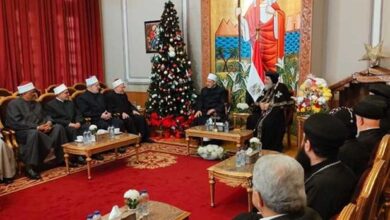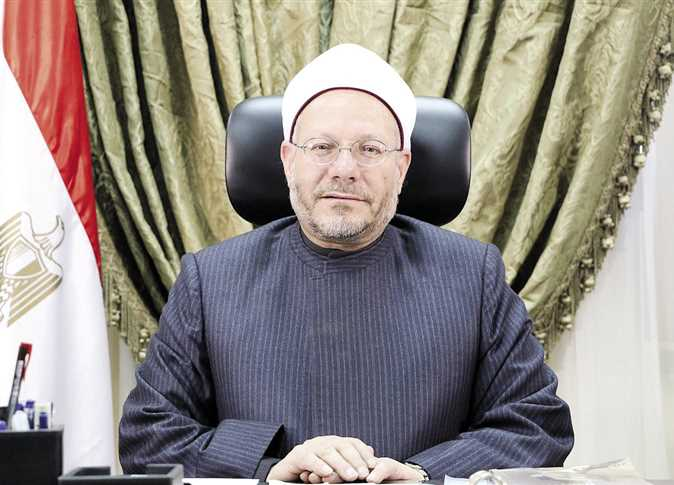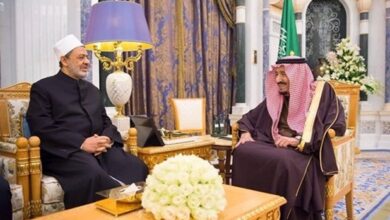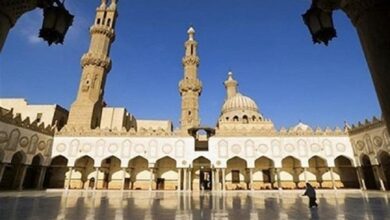The early departure of Al-Azhar Grand Sheikh Ahmed al-Tayyeb and other members of the high council of Islamic scholars from Mohamed Morsy’s first official speech as president at Cairo University makes it to most of Monday’s papers.
Youssry Hany, a member of the Muslim Brotherhood, told independent Al-Watan newspaper that their leaving early was “an unfortunate event and a mistake attributed to poor organization of the event itself.”
The opposition party paper Al-Wafd took the chance to depict what it describes as Al-Azhar’s lack of respect for the president. “Al-Azhar attacks presidency: The grand imam’s departure from Morsy’s inauguration preserves scholars’ dignity,” the front-page headline reads.
Al-Wafd says Tayyeb left because he was not given VIP status, unlike before, when he would be seated with the president and prime minister. This time, he was not allocated a place to sit, the paper writes.
Al-Azhar said in a statement that not only did Tayyeb and other members of the scholars council not have a place to sit, but they were asked to switch places because the place had been reserved for other guests.
Nasr Farid Wasel, a former grand mufti and a current member scholars council, told Al-Ahram state-run newspaper that whoever did this was either ignorant or meant to insult the scholars. He said the Al-Azhar grand sheikh is at the same level as the prime minister.
Ismail al-Diftar, another member of the council, said, “Al-Azhar sheikhs do not represent themselves — they represent all Muslims, with the history and culture as well.” He also told Al-Ahram that neither age nor scholarly status made a difference, which is against Islamic teachings.
Another topic that takes the attention of most papers Monday is the thanaweya amma chemistry exam. The thanaweya amma is the years of high school in which students’ final grades determine the public colleges they can apply to. The chemistry exam on one had drove a girl in Hurghada to attempt suicide, according to a front-page piece in the independent paper Al-Mesryoun, and on another had parents in Kafr al-Sheikh ululating out of happiness.
Independent newspaper Al-Shorouk reports that cases of cheating were caught in many governorates. In Kafr al-Sheikh, parents were stopped with megaphones outside their children’s exam rooms as they tried to call out the answers.
Osama al-Ghazaly Harb addresses the media’s handling of the exams in a column in Al-Ahram. He says it is “irresponsible” and aids in changing the true meaning of the exams when the media uses terms such as “easy” or “difficult” to describe something that should be relative from one student to another.
Newspapers also draw parallels between newly elected President Mohamed Morsy and ousted President Hosni Mubarak and their relationships with their sons. Al-Watan newspaper leads with a piece on Ahmed Morsy meeting Tunisian Prime Minister Rachid al-Ghannouchi at the airport with a gift from his father. Al-Watan also reports on protests by slum residents at renovations being made around Morsy’s home, including sidewalk repairs, electricity and water pipe improvements that were made in the area. The slum residents complained about these renovations being made while “they cannot find a home.”
Newspapers continue to speculate on what will happen to the Cabinet under Morsy. Al-Shorouk leads by saying that current Prime Minister Kamal al-Ganzouri will continue to serve until Morsy has nominated someone to fill his position.
Al-Ahram dismissed speculations over who the new Cabinet members would be, saying they are simply recommendations, referring to the mention in most papers of longtime reform advocate Mohamed ElBaradei as a potential prime minister.
Al-Shorouk also reports on complaints from independent members of the Doctors Syndicate over being ignored in a meeting on who to choose for health minister.
The same paper leads with a piece on Benjamin Netanyahu sending a congratulatory message to Morsy, who refused to respond to it. But Al-Ahram gives a different explanation, saying the foreign minister responded to the message because it is one of his duties.
On other foreign affairs, Al-Watan has a story on other Arab countries who expressed their anger at the lack of mention of their plights by Morsy. Sudanese novelist Hamoor Zeyada says the speech was in true Brotherhood fashion, tackling Palestinian and Syrian struggles and ignoring other struggles, such as those Sudan, Yemen and Bahrain.
Different newspapers also featured special reports. Al-Shorouk ran a one-page feature on tuk tuks. Morsy had mentioned tuk tuks in a speech he gave when the result of the second round of the presidential election came out. The feature drew another parallel between Morsy and Mubarak, as Mubarak announced in 2007 an increase in the number of tuk tuk drivers to increase work opportunities.
Al-Watan has a two-page spread on the problems facing the Cabinet that the new ministers under Morsy will have to deal with. The tourism industry fears it will have to adapt to an Islamic ideology that would affect the gambling industry, which had been endorsed by the old regime, the paper reports.
Egypt’s papers:
Al-Ahram: Daily, state-run, largest distribution in Egypt
Al-Akhbar: Daily, state-run, second to Al-Ahram in institutional size
Al-Gomhurriya: Daily, state-run
Rose al-Youssef: Daily, state-run
Al-Dostour: Daily, privately owned
Al-Shorouk: Daily, privately owned
Al-Watan: Daily, privately owned
Al-Wafd: Daily, published by the liberal Wafd Party
Youm7: Daily, privately owned
Al-Tahrir: Daily, privately owned
Freedom and Justice: Daily, published by the Muslim Brotherhood's Freedom and Justice Party
Sawt al-Umma: Weekly, privately owned
Al-Arabi: Weekly, published by the Nasserist Party
Al-Nour: Official paper of the Salafi Nour Party




